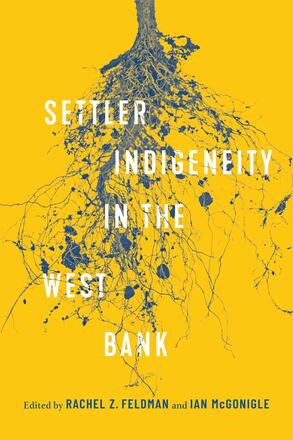
Settler-Indigeneity in the West Bank
Exploring the ideas of “settler” and “indigenous” in the West Bank.
Description
Since Israel conquered the West Bank, formerly held by Jordan, in 1967, over 400,000 settlers have moved into the territory. In recent years, Israeli settler organizations and allied American-Jewish lobbyists have responded to international condemnation of the occupation by mobilizing narratives of indigeneity, claiming sovereign and divine rights to the land.
Settler-Indigeneity in the West Bank asks what Israeli settlers mean when they say they are indigenous; how settler indigeneity is felt, performed, and mediated; and what the implications of indigeneity claims are on the international stage. Building on foundational scholarship that has come out of post-colonial and indigeneity studies, the volume theorizes settler-indigeneity as a cultural phenomenon and product of transnational settler-colonial histories, while also interrogating the dialectic of “settler” and “indigenous” to illustrate their co-constitution. Considering agriculture, clothing, food, language, and religious practices, the chapters explore how feelings of indigeneity are fashioned and how these feelings continue to transform the landscape of the West Bank.
Offering a series of original ethnographic accounts of these cultures and communities, Settler-Indigeneity in the West Bank intimately documents and discusses the processes of settler-nativization in conversation with a variety of related literature in anthropology, cultural studies, Israel studies, religious studies, and settler-colonial studies.
Reviews
“This is a very important volume that will change the way Israel/Palestine is discussed. It swerves away from the political and ideological nature of the discourse to offer deep and insightful analysis of what is actually transpiring among settlers on the ground.” Shaul Magid, Dartmouth College and author of Meir Kahane: The Public Life and Political Thought of an American Jewish Radical